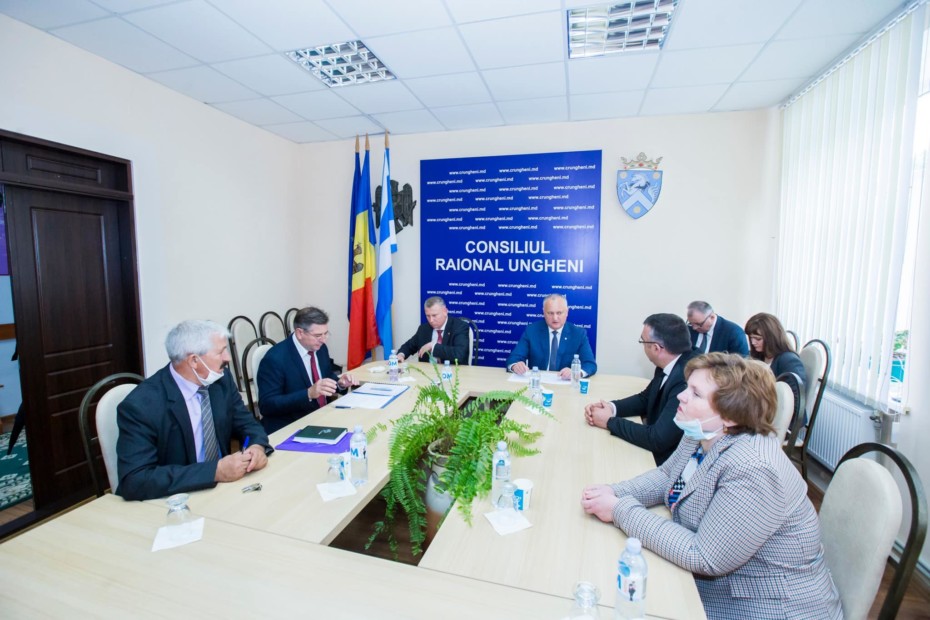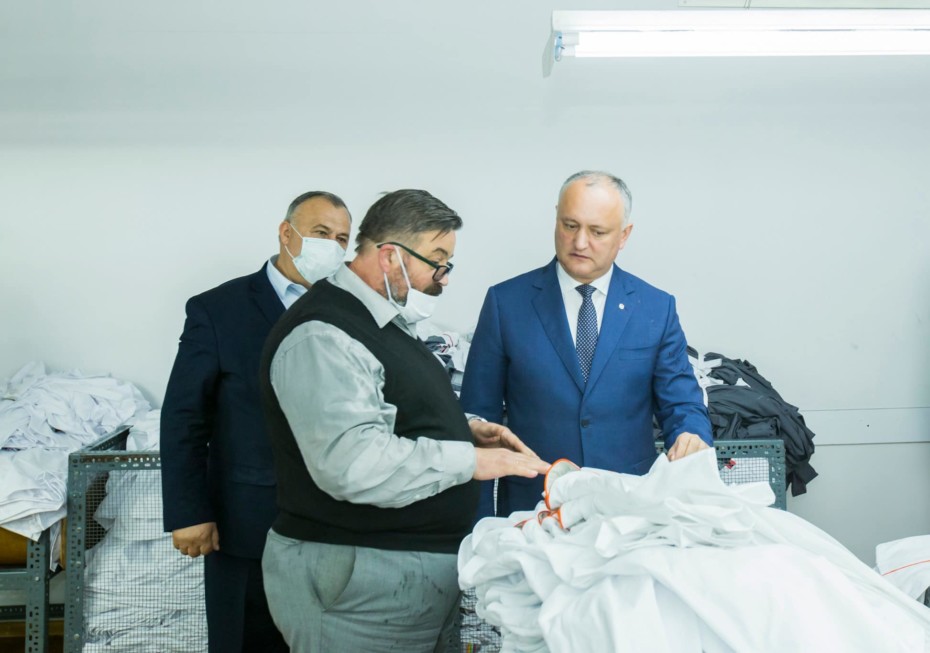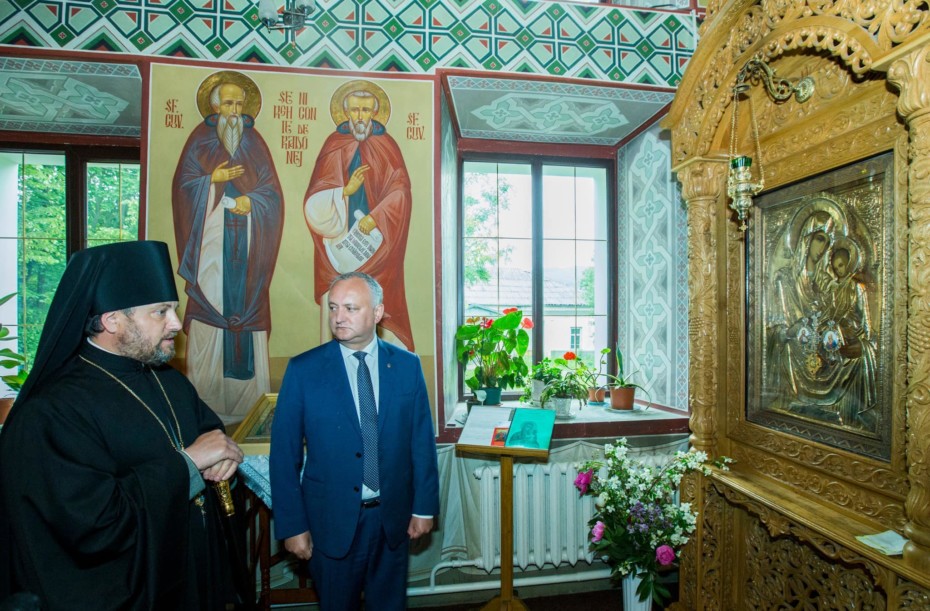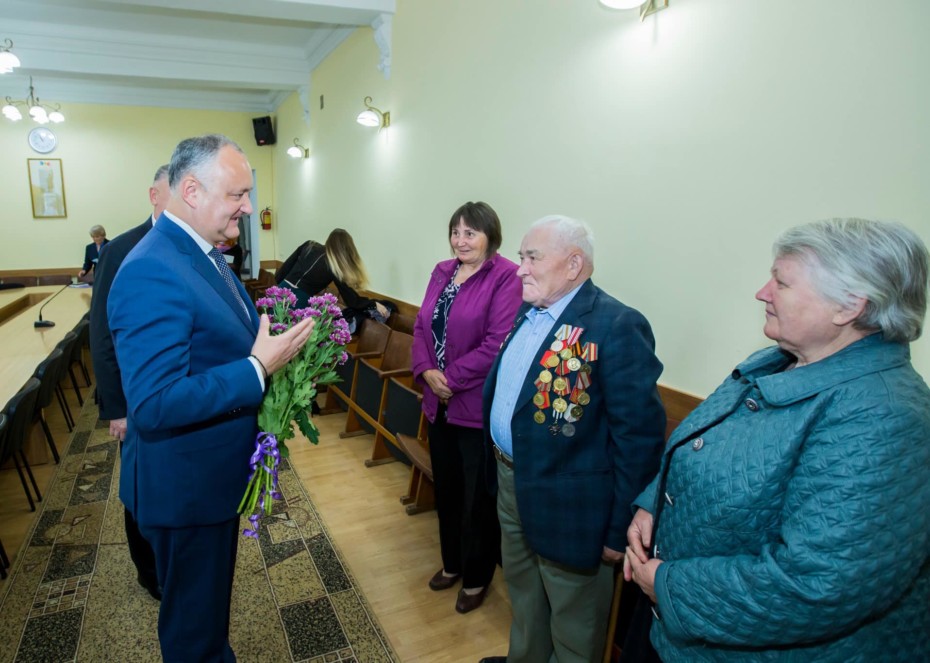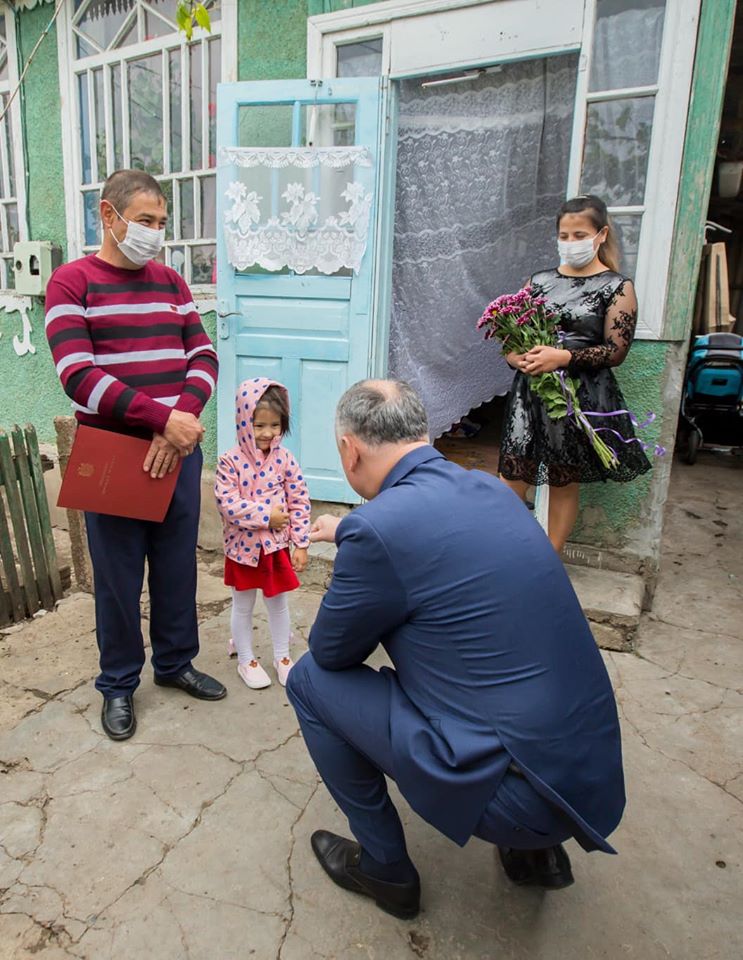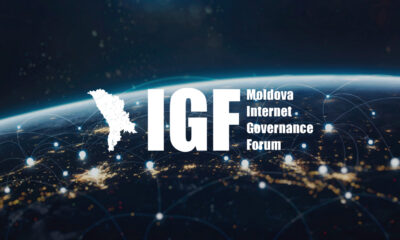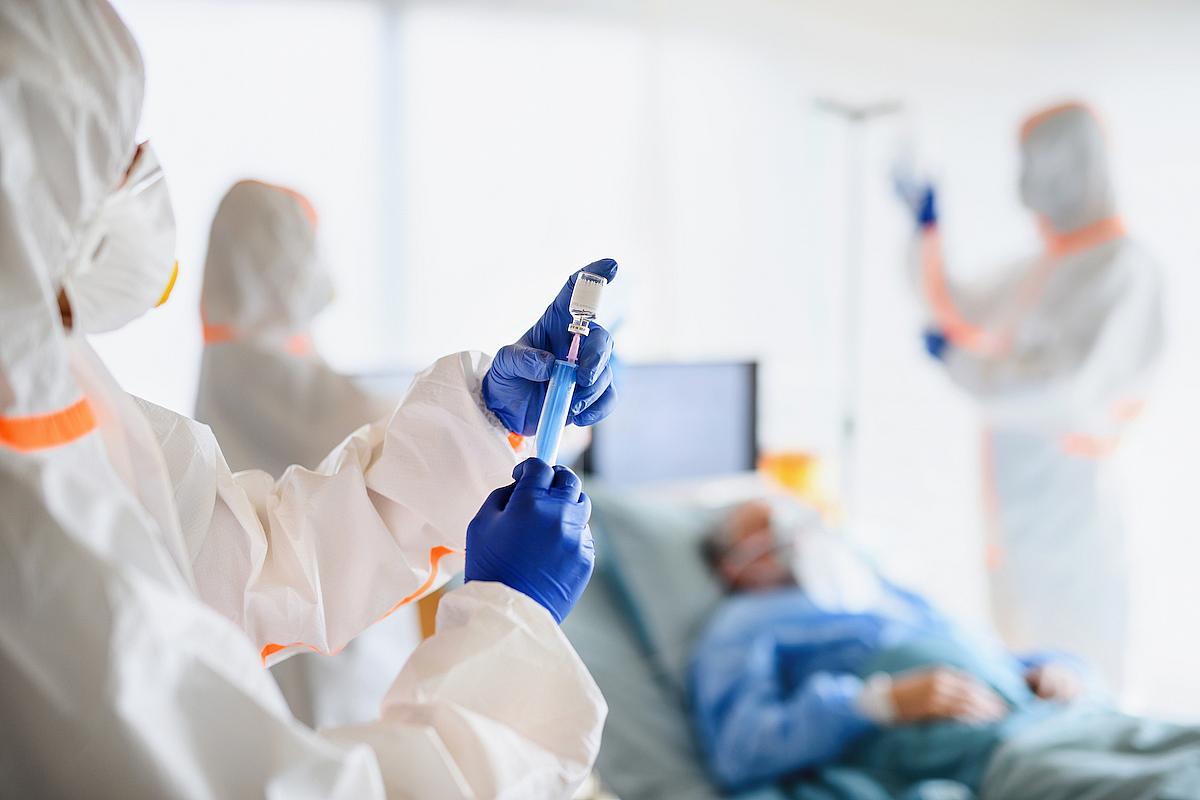
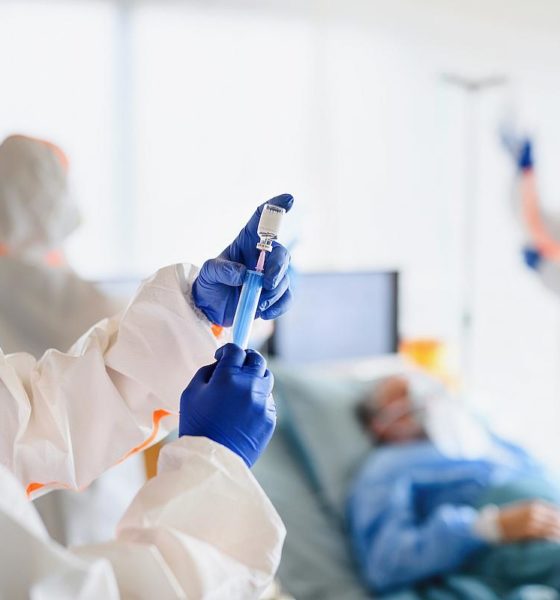
Society
Lifting coronavirus restrictions in Moldova – risks and future costs
Another 153 new cases of infection with the novel coronavirus were confirmed today in the Republic of Moldova, informed the Minister of Health, Labour and Social Protection (MHLSP). Altogether, the number of infected persons reached 8 251 cases since the beginning of the pandemic.
In the last week, there was a decrease in the number of confirmed cases by 11%, according to the specialists from the National Public Health Agency (NPHA). At the same time, the number of recovered cases increased by 5% as compared to the week before. Still, the cumulative incidence of cases reported in Moldova, when compared to other states, increased to 2 224 cases per one million population (21 out of 46 countries, according to statista.com), while the death rate increased from 67 deaths per one million population to 80 deaths per one million population.
While most of these numbers are interpreted positively by the Moldovan authorities, there are still restrictions on which the pandemic evolution depends. In case they are lifted to soon, the next wave of infection cases could begin. If they are kept for too long, a lot of businesses and family budgets would suffer. Therefore, a lot of future risks and costs depend on the next steps taken by officials.
Unbalanced restrictions’ lifting
The last decision of the National Extraordinary Public Health Commission lifted certain restrictions imposed during the state of emergency in the country. For example, it was decided to open all open-air markets in the country, including the ones from big cities (Chisinau and Balti) starting June 1, relaunch the activity of the shopping centres, except for restaurants and entertainment units located inside – June 8, allow religious ceremonies, including meetings in public places for celebrating important religious holidays – June 5. Starting June 15, gyms and restaurant units will be reopened as well.
On the other hand, the Government of the Republic of Moldova decided to cancel this year high school graduation exams. “Given the exceptional circumstances, it was necessary to adopt some measures aimed at reducing the risk of contagion of middle school and high school graduates and teachers. The organisation of graduation exams involves a series of indoor activities and a large number of persons (high school graduation exams – about 40 000 people, the Baccalaureate exams about 20 000 people), which increases the risk of infection, even though the necessary protection measures would be followed,” said the Ministry of Education, Culture and Research (MECR).
The Parliament approved, on 21 May, a draft law on the cancellation of national graduation exams of the 2020 examination session.
Not everyone agreed with the taken decisions though. “As the markets open, where the congestion is very high, as the supermarkets worked during severe quarantine, in the same way, examinations could have been carried out with all the restrictions imposed to avoid the spread of the new type of coronavirus,” declared former Minister of Education, Corina Fusu, for ZdG.
“Many decisions on restrictions’ lifting have no logic. One of them would be the reopening of gyms with no access to the bathrooms or locker rooms. […] Strategies were lacking in Moldova. Instead, we enjoyed daily statistics, not well-determined actions. We have paid for it, both with the health and lives of people, as well as with a downgraded economy, “ said the WHO expert and former Minister of Health, Ala Nemerenco. The former dignitary argued that Moldova is way behind other European countries when it comes to the pandemic evolution, however the restrictions are lifted at the same time.
“The number of new cases, the serious or critical cases is still very high. At the same time, the number of deaths is high. In other European countries people are more educated in this regard. They know what shift work means and what sanitary hygiene means. Our people still don’t know anything about this. I still argue that the Rahmanish Easter (religious holiday postponed for the beginning of June in Moldova) should be cancelled. I am also against the markets’ reopening,” head of the NPHA, Nicolae Furtuna, claimed for ZdG.
Restrictions are not for everyone
The opposition MP, Sergiu Litvinenco, filed a complaint with the Ministry of Internal Affairs, to fine President Igor Dodon because he didn’t comply with the rules imposed during the pandemic period. First, the president expressed a superficial and uninformed opinion regarding the novel coronavirus, saying it is not more than a flu that affects merely older people.
Moreover, Dodon recently posted several photos and videos on social media where it can be observed that meetings with local public authorities, economic agents, citizens, including older people and children, were conducted without wearing a protective mask and keeping social distance, especially indoors.
“The law is the same for everyone and must be equally applied. Igor Dodon must be punished for the obvious violation of the mandatory rules on prevention and control measures of epidemic diseases!”
Nevertheless, Minister of Internal Affairs, Pavel Voicu, declared that no deviation from rules were found. “We did not fine him because he has immunity. We have not seen any deviations from the Commission’s provisions so far,” he said.
- Source: Facebook| Igor Dodon
COVID-19 is still here
Speaker of the Parliament, Zinaida Greceanii, signed a provision regarding self-isolation regime establishment for all members of the Parliament from May 22, as several persons in the legislature, including a MP, were tested positive for coronavirus previously. All members and staff of the Parliament were tested and were asked to stay at home until the confirmation of negative results for COVID -19, as it was announced in a press release of the Moldovan Parliament.
Meanwhile, 1602 cases of infection (19,41% of total cases) have been confirmed among healthcare system employees, including 380 doctors, 20 pharmacists, 630 nurses, 84 janitors and 488 support staff.
The authorities desire to relaunch the economy of the country is understandable, as well as the opposition and experts’ reluctance regarding the speed and relevancy of restrictions’ lifting. However, taking into consideration the relatively low level of informing the population on how to correctly exit the restrictions’ period and the lack of a consistent strategy of authorities on how and when to reopen various activities, the future costs of the already taken decisions could be really painful.
Photo: Dreamstime.com
Society
“They are not needy, but they need help”. How Moldovan volunteers try to create a safe environment for the Ukrainian refugees

At the Government’s ground floor, the phones ring constantly, the laptop screens never reach standby. In one corner of the room there is a logistics planning meeting, someone has a call on Zoom with partners and donors, someone else finally managed to take a cookie and make some coffee. Everyone is exhausted and have sleepy red eyes, but the volunteers still have a lot of energy and dedication to help in creating a safe place for the Ukrainian refugees.
“It’s like a continuous bustle just so you won’t read the news. You get home sometimes and you don’t have time for news, and that somehow helps. It’s a kind of solidarity and mutual support,” says Vlada Ciobanu, volunteer responsible for communication and fundraising.
The volunteers group was formed from the very first day of war. A Facebook page was created, where all types of messages immediately started to flow: “I offer accommodation”, “I want to help”, “I want to get involved”, “Where can I bring the products?”, “I have a car and I can go to the customs”. Soon, the authorities also started asking for volunteers’ support. Now they all work together, coordinate activities and try to find solutions to the most difficult problems.
Is accommodation needed for 10, 200 or 800 people? Do you need transportation to the customs? Does anyone want to deliver 3 tons of apples and does not know where? Do you need medicine or mobile toilets? All these questions require prompt answers and actions. Blankets, sheets, diapers, hygiene products, food, clothes – people bring everything, and someone needs to quickly find ways of delivering them to those who need them.
Sometimes this collaboration is difficult, involves a lot of bureaucracy, and it can be difficult to get answers on time. “Republic of Moldova has never faced such a large influx of refugees and, probably because nobody thought this could happen, a mechanism of this kind of crisis has not been developed. Due to the absence of such a mechanism that the state should have created, we, the volunteers, intervened and tried to help in a practical way for the spontaneous and on the sport solutions of the problems,” mentions Ecaterina Luțișina, volunteer responsible for the refugees’ accommodation.
Ana Maria Popa, one of the founders of the group “Help Ukrainians in Moldova/SOS Українці Молдовa” says that the toughest thing is to find time and have a clear mind in managing different procedures, although things still happen somehow naturally. Everyone is ready to intervene and help, to take on more responsibilities and to act immediately when needed. The biggest challenges arise when it is necessary to accommodate large families, people with special needs, for which alternative solutions must be identified.
Goods and donations
The volunteers try to cope with the high flow of requests for both accommodation and products of all kinds. “It came to me as a shock and a panic when I found out that both mothers who are now in Ukraine, as well as those who found refuge in our country are losing their milk because of stress. We are trying to fill an enormous need for milk powder, for which the demand is high and the stocks are decreasing”, says Steliana, the volunteer responsible for the distribution of goods from the donation centers.
Several centers have been set up to collect donations in all regions of Chisinau, and volunteers are redirecting the goods to where the refugees are. A system for processing and monitoring donations has already been established, while the volunteer drivers take over the order only according to a unique code.
Volunteers from the collection centers also do the inventory – the donated goods and the distributed goods. The rest is transported to Vatra deposit, from where it is distributed to the placement centers where more than 50 refugees are housed.
When they want to donate goods, but they don’t know what would be needed, people are urged to put themselves in the position of refugees and ask themselves what would they need most if they wake up overnight and have to hurriedly pack their bags and run away. Steliana wants to emphasise that “these people are not needy, but these people need help. They did not choose to end up in this situation.”
Furthermore, the volunteer Cristina Sîrbu seeks to identify producers and negotiate prices for products needed by refugees, thus mediating the procurement process for NGOs with which she collaborates, such as Caritas, World Children’s Fund, Polish Solidarity Fund, Lifting hands, Peace Corps and others.
One of the challenges she is facing now is the identifying a mattress manufacturer in the West, because the Moldovan mattress manufacturer that has been helping so far no longer has polyurethane, a raw material usually imported from Russia and Ukraine.
Cristina also needs to find solutions for the needs of the volunteer groups – phones, laptops, gsm connection and internet for a good carrying out of activities.
Hate messages
The most difficult thing for the communication team is to manage the hate messages on the social networks, which started to appear more often. “Even if there is some sort of dissatisfaction from the Ukrainian refugees and those who offer help, we live now in a very diverse society, there are different kind of people, and we act very differently under stress,” said Vlada Ciobanu.
Translation by Cătălina Bîrsanu
Important
#WorldForUkraine – a map that shows the magnitude of the world’s actions against Russian aggression

The international community and volunteers from all over te world have launched #WorldForUkraine as a platform that shows the magnitude of the world’s actions against the Russian aggression. In a digital world – it is an interactive map of public support of Ukrainians under the hashtag #WorldForUkraine – rallies, flash mobs, protests around the world. In the physical dimension – it is your opportunity to take to the streets and declare: “No to Putin’s aggression, no to war.”
„Today, along with the political and military support, emotional connection with the civilized world and truthful information are extremely important for Ukraine. The power to do it is in your hands. Join the #WorldForUkraine project and contribute to the victorious battle against the bloodshed inflicted on Ukraine by the aggression of the Russian Federation”, says the „about the project” section of the platform.
Go to the streets — Tell people — Connect and Unite — Become POWERFUL
Volunteers have launched #WorldForUkraine as a platform that shows the magnitude of the world’s actions against Russian aggression. In digital world – it is an INTERACTIVE MAP of public support of Ukrainians worldforukraine.net under the hashtag #WorldForUkraine – rallies, flash mobs, protests around the world. In the physical dimension – it is your opportunity to take to the streets and declare: “No to Putin’s aggression, no to war.” There you may find information about past and future rallies in your city in support of Ukraine. This is a permanent platform for Ukrainian diaspora and people all over the world concerned about the situation in Ukraine.
So here’s a couple of things you could do yourself to help:
* if there is a political rally in your city, then participate in it and write about it on social media with geolocation and the hashtag #WorldForUkraine
* if there are no rallies nearby, organize one in support of Ukraine yourself, write about it on social media with geolocation adding the hashtag #WorldForUkraine
The map will add information about gathering by #WorldForUkraine AUTOMATICALLY
Your voice now stronger THAN ever
All rallies are already here: https://worldforukraine.net
Important
How is Moldova managing the big influx of Ukrainian refugees? The authorities’ plan, explained

From 24th to 28th of February, 71 359 Ukrainian citizens entered the territory of Republic of Moldova. 33 173 of them left the country. As of this moment, there are 38 186 Ukrainian citizens in Moldova, who have arrived over the past 100 hours.
The Moldovan people and authorities have organized themselves quickly from the first day of war between Russia and Ukraine. However, in the event of a prolonged armed conflict and a continuous influx of Ukrainian refugees, the efforts and donations need to be efficiently managed. Thus, we inquired about Moldova’s long-term plan and the state’s capacity to receive, host, and treat a bigger number of refugees.
On February 26th, the Ministry of Labor and Social Protection of Moldova approved the Regulation of organization and functioning of the temporary Placement Center for refugees and the staffing and expenditure rules. According to the Regulation, the Centers will have the capacity of temporary hosting and feeding at least 20 persons, for a maximum of 3 months, with the possibility of extending this period. The Centers will also offer legal, social, psychological, and primary medical consultations to the refugees. The Center’s activity will be financed from budget allocations, under Article 19 of Provision no. 1 of the Exceptional Situations Commission from February 24th, 2022, and from other sources of funding that do not contravene applicable law.
The Ministry of Inner Affairs and the Government of Moldova facilitated the organization of the volunteers’ group “Moldova for Peace”. Its purpose is to receive, offer assistance and accommodation to the Ukrainian refugees. The group is still working on creating a structure, registering and contacting volunteers, etc. It does not activate under a legal umbrella.
Lilia Nenescu, one of the “Moldova for Peace” volunteers, said that the group consists of over 20 people. Other 1700 registered to volunteer by filling in this form, which is still available. The group consists of several departments:
The volunteers’ department. Its members act as fixers: they’re responsible for connecting the people in need of assistance with the appropriate department. Some of the volunteers are located in the customs points. “The Ministry of Inner Affairs sends us every day the list of the customs points where our assistance is needed, and we mobilize the volunteers”, says Lilia Nenescu.
The Goods Department manages all the goods donated by the Moldavian citizens. The donations are separated into categories: non-perishable foods and non-food supplies. The volunteers of this department sort the goods into packages to be distributed.
The Government intends to collect all the donations in four locations. The National Agency for Food Safety and the National Agency for Public Health will ensure mechanisms to confirm that all the deposited goods comply with safety and quality regulations.
The Service Department operates in 4 directions and needs the volunteer involvement of specialists in psychology, legal assistance (the majority of the refugees only have Ukrainian ID and birth certificates of their children); medical assistance; translation (a part of the refugees are not Ukrainian citizens).
According to Elena Mudrîi, the spokesperson of the Ministry of Health, so far there is no data about the number of Covid-19 positive refugees. She only mentioned two cases that needed outpatient medical assistance: a pregnant woman and the mother of a 4-day-old child.
The Accommodation Department. The volunteers are waiting for the centralized and updated information from the Ministry of Labor about the institutions offering accommodation, besides the houses offered by individuals.
The Transport Department consists of drivers organized in groups. They receive notifications about the number of people who need transportation from the customs points to the asylum centers for refugees.
The municipal authorities of Chișinău announced that the Ukrainian children refugees from the capital city will be enrolled in educational institutions. The authorities also intend to create Day-Care Centers for children, where they will be engaged in educational activities and will receive psychological assistance. Besides, the refugees from the municipal temporary accommodation centers receive individual and group counseling.
In addition to this effort, a group of volunteers consisting of Ana Gurău, Ana Popapa, and Andrei Lutenco developed, with the help of Cristian Coșneanu, the UArefugees platform, synchronized with the responses from this form. On the first day, 943 people offered their help using the form, and 110 people asked for help. According to Anna Gurău, the volunteers communicate with the Government in order to update the platform with the missing data.
Translation from Romanian by Natalia Graur

